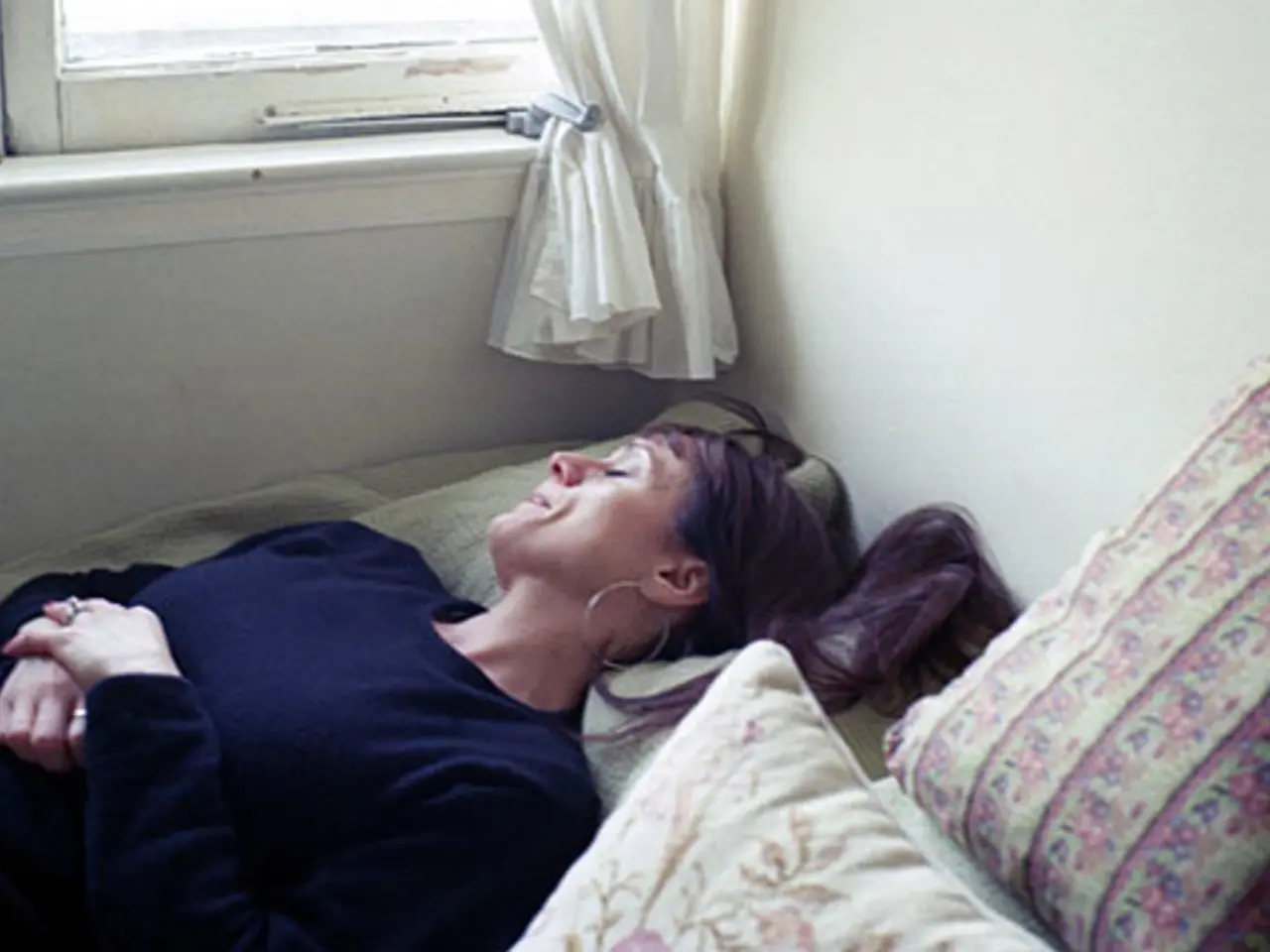Insomnia upon reclining: What causes this phenomenon?
Dizziness when lying down can be a concerning symptom, and it's essential to understand its various causes to ensure accurate diagnosis and appropriate management. While Benign Paroxysmal Positional Vertigo (BPPV) is the most common cause of dizziness when changing positions, there are other conditions to consider. Here are some of the most common non-BPPV causes:
## Common Causes of Dizziness When Lying Down (Non-BPPV)
### 1. Labyrinthitis and Vestibular Neuritis - Labyrinthitis involves inflammation of both the hearing and balance nerves in the inner ear, while vestibular neuritis affects only the vestibular nerve. - Both conditions can cause dizziness, vertigo, nausea, and sometimes hearing loss or tinnitus (ringing in the ear). - Symptoms often last from hours to days and may cause ongoing balance issues.
### 2. Ménière’s Disease - Ménière’s disease is a chronic inner ear disorder characterized by episodes of vertigo, hearing loss, tinnitus, and a feeling of fullness in the ear. - Dizziness or vertigo can occur in any position, including when lying down. - Attacks may last minutes to hours and are often unpredictable.
### 3. Low Blood Pressure (Orthostatic Hypotension) - Orthostatic hypotension is a drop in blood pressure when changing positions, such as lying down to sitting up. - While it is more commonly associated with standing up quickly, some people may experience dizziness or lightheadedness when lying down, especially if blood pressure is unusually low. - This can be due to dehydration, medication side effects, or underlying health conditions.
### 4. Medication Side Effects - Certain medications (such as blood pressure drugs, sedatives, or antidepressants) can cause dizziness as a side effect. - This dizziness may be more noticeable when resting or changing positions.
### 5. Migraine-Associated Vertigo - Vestibular migraine or migraine-associated vertigo can cause dizziness or vertigo in any position, including when lying down. - These episodes may be accompanied by headache or occur independently.
### 6. Other Neurological or Medical Conditions - Anxiety or stress can sometimes cause dizziness or lightheadedness, even when lying down. - Dehydration, low blood sugar (hypoglycemia), and anemia are other possible contributors. - Head trauma or concussions may also lead to dizziness or vertigo.
## Summary Table
| Cause | Key Features | |-----------------------------|------------------------------------------------------------------------------| | Labyrinthitis/Vestibular Neuritis | Dizziness, nausea, possible hearing loss, tinnitus, balance issues | | Ménière’s Disease | Episodic vertigo, hearing loss, tinnitus, ear fullness | | Low Blood Pressure | Lightheadedness, especially when changing positions | | Medication Side Effects | Dizziness as a reported side effect | | Migraine-Associated Vertigo | Dizziness/vertigo, may have headache | | Anxiety/Stress | Dizziness or lightheadedness, often with psychological symptoms | | Dehydration/Low Blood Sugar | Lightheadedness, tiredness, weakness | | Head Trauma | Dizziness, vertigo, possible history of head injury |
If dizziness when lying down persists or is accompanied by other symptoms (such as hearing loss, severe headache, or neurological changes), it is important to consult a healthcare provider for proper evaluation and management.
- Besides Benign Paroxysmal Positional Vertigo, scientific research suggests that Labyrinthitis and Vestibular Neuritis, conditions that cause inflammation in the inner ear, could be responsible for dizziness when lying down.
- These conditions, including Labyrinthitis and Vestibular Neuritis, can also lead to vertigo, nausea, and tinnitus.
- In some cases, Ménière’s Disease, a chronic inner ear disorder, might manifest as dizziness or vertigo, even when lying down.
- Orthostatic Hypotension, a drop in blood pressure when changing positions, can result in dizziness or lightheadedness, especially during sleeping hours.
- Medication Side Effects, particularly those from blood pressure drugs, sedatives, or antidepressants, may cause persistent dizziness, especially when lying down.
- Vestibular migraine or migraine-associated vertigo can contribute to dizziness or vertigo in any position, even when sleeping.
- Anxiety or stress, mental health issues, can sometimes provoke dizziness or lightheadedness, even during sleep.
- Dehydration or low blood sugar levels might cause lightheadedness and subsiding energy, both of which can contribute to dizziness during sleep.
- Diabetes Type 1 or Type 2, chronic kidney diseases, psoriatic arthritis, ulcerative colitis, and other chronic medical conditions can lead to dizziness as a symptom in some individuals.
- A healthy lifestyle encompassing nutrition, skin care, fitness and exercise, and mental health can contribute to better management of chronic diseases, potentially reducing the likelihood of dizziness symptoms.
- The use of CBD, a non-psychoactive compound found in cannabis, could potentially provide relief for those experiencing dizziness caused by chronic conditions, due to its anti-inflammatory and pain-relieving properties.




